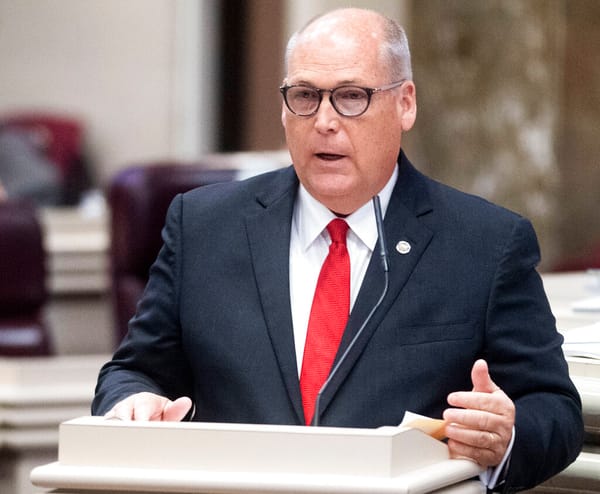House Passes “Stop Chinese Fentanyl Act,” Targets CCP’s Role in Opioid Crisis
Bill now goes to Senate committee

The U.S. House of Representatives approved the Stop Chinese Fentanyl Act, sponsored by Rep. Andy Barr (R-KY), a bill to hold the Chinese Communist Party (CCP) and associated entities responsible for the rise in fentanyl-related deaths across America. The bill passed the House last week by a vote of 407-4. It has now moved to the Senate, where it’s been referred to the Banking, Housing, and Urban Affairs Committee.
By broadening the definition of “foreign opioid trafficker” in the existing Fentanyl Sanctions Act, the bill allows sanctions on Chinese individuals, organizations, and officials involved in:
- Producing, selling, financing, or transporting synthetic opioids or precursor chemicals
- Failing to apply “know-your-customer” policies
- Ignoring U.S. counternarcotics cooperation
The legislation also requires the President to assess whether senior Chinese officials—including leaders of the National Narcotics Control Commission, the Ministry of Public Security, Customs, and the National Medical Products Administration—should be designated as foreign opioid traffickers.
Rep. Barr called out the CCP’s role in the crisis, stating:
“The Chinese Communist Party has played a key part in the deadly fentanyl crisis plaguing Kentucky and our entire country — from manufacturing fentanyl in China to laundering the products through the cartels and into the country.”
Rep. Barry Moore (R-AL1) spoke on the bill, saying, “Every day, American families are being torn apart by fentanyl. It is now the number one killer of young adults in our country, and we know much of it has been flowing here from China and through Biden's wide-open southern border. President Trump has secured our southern border, but Congress must also go after China’s role in flooding our streets with poison. This is a national security issue, a public health issue, and a fight for the future of our kids. Alabama families deserve a government that will stand up to China and stop this crisis at its source.”
- Fentanyl is now the leading cause of death for Americans aged 18 to 45—accounting for nearly 70 percent of overdose fatalities
- In 2022, synthetic opioid overdoses claimed 73,838 lives
- From September 2023 to August 2024, nearly 58,000 overdose deaths occurred, including 1,984 in Kentucky alone
- The Drug Enforcement Administration reports China as the primary source of fentanyl precursors
- In the last two years, more than 300 entities have been sanctioned by the U.S. Treasury's Office of Foreign Assets Control for drug trafficking
- According to the Alabama Department of Mental Health, between 2015 and 2021, 6,307 people died from drug overdoses—“opioids caused 981 overdose deaths in 2021, accounting for 70 percent of all overdose deaths in the state.”
While Congress debates the Stop Chinese Fentanyl Act, Alabama is already receiving substantial funds from legal actions tied to the opioid crisis.
Alabama is among 55 States and Territories to sign on to a $7.4 billion settlement with Purdue Pharma and the Sackler family. The deal is designed to resolve lawsuits over the part they played in spreading OxyContin and fueling the epidemic. The Sacklers will pay roughly $6.5 billion; Purdue adds about $900 million. Funds will flow over 15 years, with much of the money arriving in the first three years.
Alabama stands to receive up to $75 million from this settlement. The funds are meant to support addiction treatment, prevention, and recovery in communities across the State.
Alabama has also joined another national settlement with eight drug manufacturers tied to opioid pain pills. The State will receive approximately $11.725 million—on top of the Purdue-Sackler funds.
Key companies in the deal include Mylan (now part of Viatris), Hikma, Amneal, Apotex, Indivior, Sun, Alvogen, and Zydus. Some will also provide free drugs or cash, and most are barred from promoting opioids or selling high-dose oxycodone products. Indivior agreed to stop manufacturing opioids for 10 years, though it can still sell treatments for opioid use disorder.
Combined, these legal settlements promise nearly $87 million over 15 years—money Alabama can deploy to fortify treatment programs, train first responders, and bolster community outreach.
The State’s own lawmakers are not standing idle. Rep. Matt Simpson (R-Daphne) sponsored legislation in 2023 imposing mandatory minimum sentences for fentanyl trafficking—ranging from three-year prison terms for small amounts to life sentences for traffickers with eight or more grams, along with hefty fines. These moves speak to Alabama’s multi-pronged strategy: legal accountability, treatment funding, and tough enforcement.
If the Stop Chinese Fentanyl Act becomes law, Alabama could benefit twice: capturing more funds from legal settlements tied to domestic opioid manufacturers—and cutting off the global flow of fentanyl supply through sanctions.
To follow the progress of the Stop Chinese Fentanyl Act or to read the bill, follow THIS LINK.




